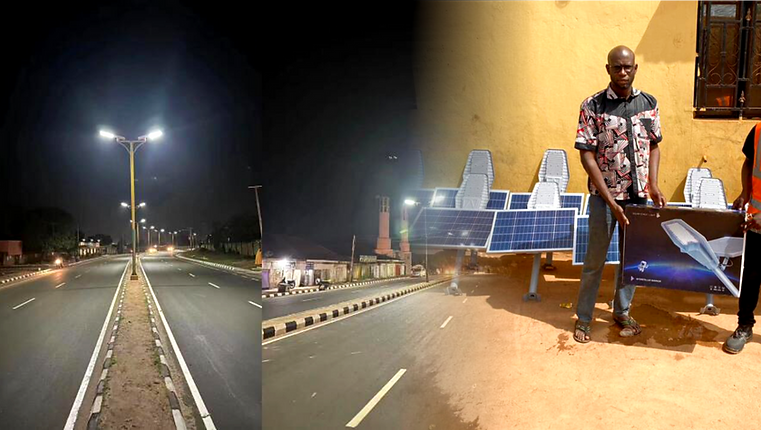
PROJECT TITLE: BANJUL THE GAMBIA 15KW OFF GRID SOLAR SYSTEM
PROJECT SITE: BANJUL THE GAMBIA
DATE: MARCH, 2023
PROJECT TYPE: RESIDENTIAL SOLAR POWER SYSTEM PROJECT

Africa, which boasts 15 percent of the global population, is facing significant challenges regarding access to electricity—particularly in rural areas where about 90 percent of the population remains without this essential utility. Even in urban spaces, unlit streets pose safety and security concerns. This scenario highlights a substantial gap in the lighting industry across the continent, showcasing both a pressing need and a unique market opportunity. The National Economic Empowerment & Development Strategy (NEEDS) has been at the forefront of efforts to develop sustainable lighting solutions that can effectively address these challenges in West Africa.
The Current Landscape
The lack of electricity affects daily life and economic productivity in numerous ways. In rural communities, the absence of reliable lighting limits opportunities for education, stifles small business operations, and constrains social interactions after sunset. Urban areas are not immune either; poorly lit streets contribute to crime and hinder nighttime economic activities.
Despite these hurdles, the lighting industry's overall development in Africa remains low. This presents an opportunity for innovative solutions to transform the market landscape.
NEEDS Initiatives
Recognizing the urgent need for sustainable energy solutions, NEEDS has embarked on a mission to provide energy-saving LED lighting to users across West Africa. LED technology is a game changer—it offers longer lifespans, greater efficiency, and reduced energy consumption compared to traditional lighting.
Key Rules
1. Expand Access to Lighting: By distributing affordable LED lighting solutions, NEEDS aims to enhance accessibility in both rural and urban settings.
2. Promote Energy Efficiency: Transitioning to LED technology not only conserves energy but also reduces costs for consumers, thereby improving household economies.
3. Foster Economic Growth: Better lighting can lead to increased productivity, extended working hours, improved safety, and enhanced educational opportunities.
Implementation Strategies
To effectively roll out LED lighting solutions, NEEDS implements several strategies:
1. Community Engagement: Collaborating with local communities to understand their unique needs and develop tailored solutions.
2. Partnerships: Working alongside governmental, non-governmental organizations, and private sector players to leverage resources and expertise.
3. Awareness Campaigns: Educating communities about the benefits of switching to energy-efficient lighting options.
4. Financing Options: Offering micro-financing and other financial support to ensure affordability for low-income households.
Conclusion
The initiative led by the National Economic Empowerment & Development Strategy (NEEDS) to introduce energy-saving LED lighting solutions represents a significant step toward addressing the electricity gap in West Africa. By focusing on sustainability and accessibility, NEEDS not only aims to illuminate homes and streets but also drive economic empowerment and enhance quality of life across the region. As these solutions take root, the possibility for a transformed lighting industry and its positive ripple effects on communities becomes increasingly tangible.
